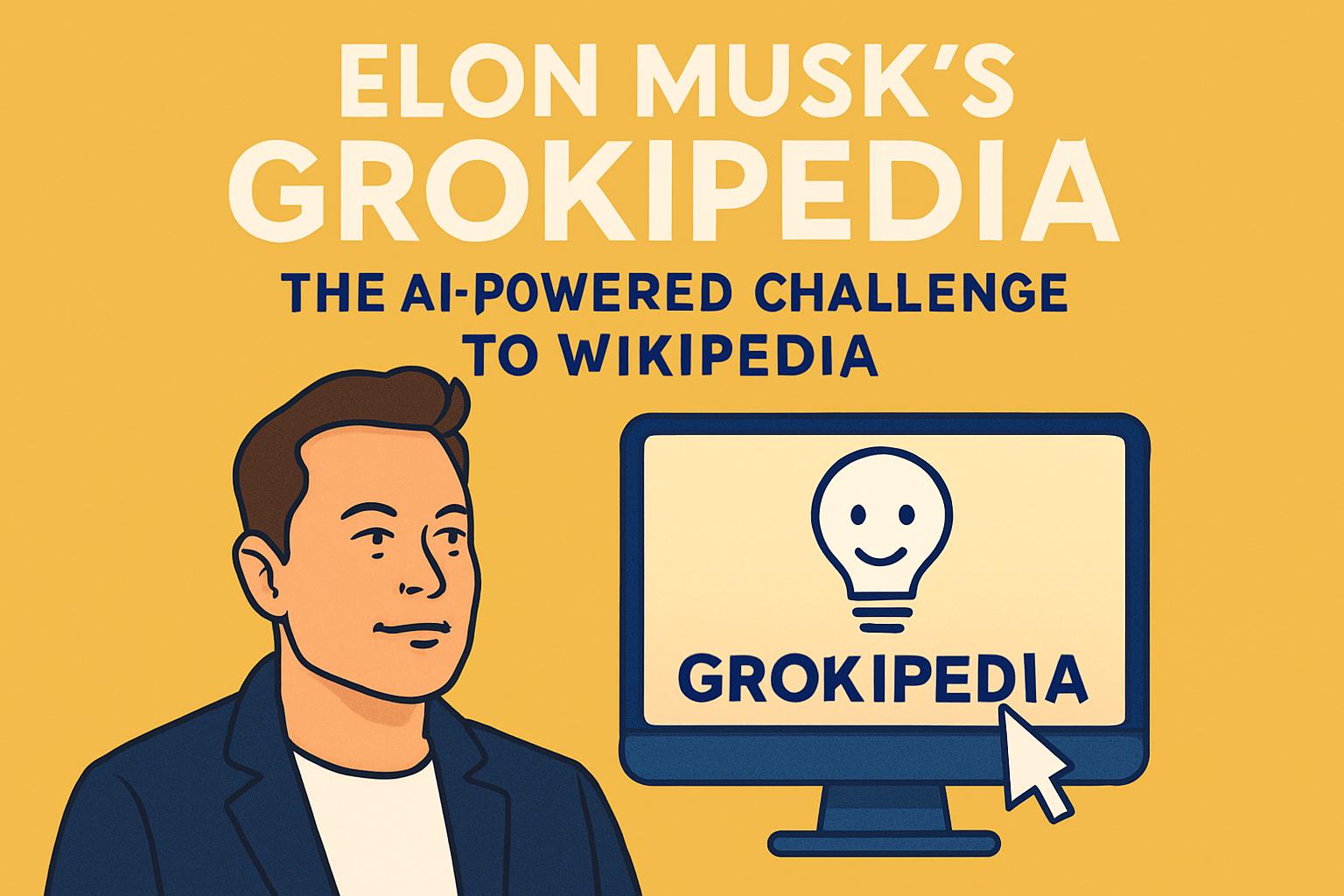In a world accustomed to Elon Musk’s bold visions, his latest endeavor, Grokipedia, promises to redefine knowledge dissemination as we know it. Unveiled as an ‘AI truth machine,’ Grokipedia aims to challenge the might of Wikipedia by offering a platform free from traditional biases, a bold claim that stirs both excitement and skepticism in equal measure.
Unveiling Grokipedia: Musk’s Vision for a 10x Better Platform
Launched as a beta version, Grokipedia is the brainchild of xAI, Musk’s artificial intelligence company. With over 800,000 entries sourced from Wikipedia’s Creative Commons, the platform promises a novel twist—AI-generated content crafted to eliminate perceived biases in existing knowledge repositories. Musk envisions Grokipedia as a tenfold improvement over Wikipedia, a claim that speaks to his unyielding ambition to innovate.
However, early users of Grokipedia have noticed some teething problems, with semantical quirks and humorous entries that highlight the challenges of using AI to handle nuanced information.
Mixed Reactions and a Contentious Debut
The debut of Grokipedia garnered substantial attention, leading to temporary server overloads. Public reactions were polarized, with some appreciating the sleek user interface and real-time fact-checking capabilities, while others viewed it as merely a repackaged version of Wikipedia. Skeptics questioned the platform’s neutrality, suspecting it might reflect Musk’s personal worldviews.
Can Grokipedia Truly Erase Bias?
Grokipedia positions itself as a bastion against ideological bias—a significant claim in light of longstanding criticisms of Wikipedia’s gender and cultural imbalances. By utilizing AI to verify facts, Grokipedia aspires to offer a purer form of knowledge.
Nevertheless, concerns over the platform’s potential biases persist. Critics point to an alleged right-leaning tendency in some content, calling into question whether Grokipedia might become a vehicle for Musk’s perspectives. The platform’s reliance on content from Twitter, often criticized as a misinformation hotspot, further compounds these concerns.
The Context of Grokipedia in the AI Era
Grokipedia’s launch symbolizes a pivotal moment in 2025’s AI-driven content creation landscape. As the well of human-sourced information dwindles, AI’s growing role in generating knowledge raises questions about data integrity and reliability. There are fears that AI trained solely on synthetic data could lead to an informational echo chamber, underscoring the need for careful oversight.
Open Collaboration as a Path Forward?
Championing an open-source approach, Musk invites global developers and content creators to contribute to Grokipedia’s growth. Venture capitalist Chamath Palihapitiya predicts it could surpass Wikipedia within a year, contingent upon maintaining transparency and avoiding the pitfalls of personal bias.
As it stands, Grokipedia has successfully captured the global spotlight, offering a tantalizing glimpse into the future of knowledge-sharing. Whether it revolutionizes how we access information or fades into a Muskian utopia remains to be seen.

![[News] Bitcoin at a Turning Point? 10x Research Signals a Bullish Macro Shift Ahead](https://cryptoexplores.com/wp-content/uploads/2025/06/new20250616.jpg)
![[News] Binance Lists $HOME, the Gas-Free, Bridge-Free All-in-One DeFi App](https://cryptoexplores.com/wp-content/uploads/2025/06/news20250617.jpg)